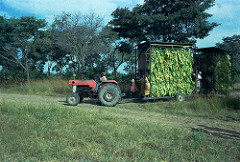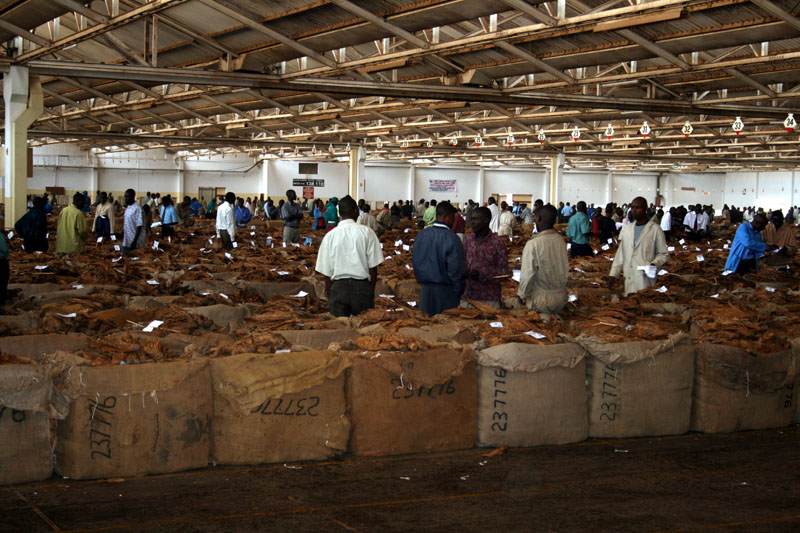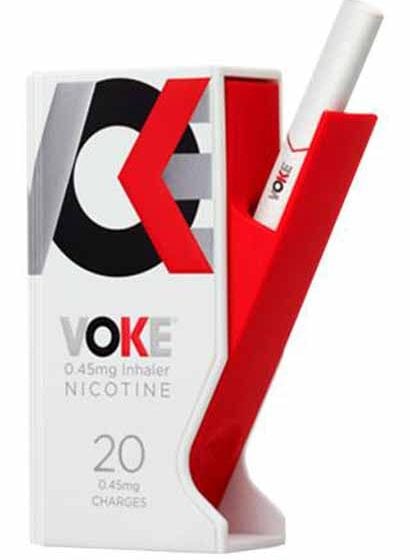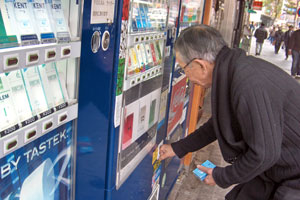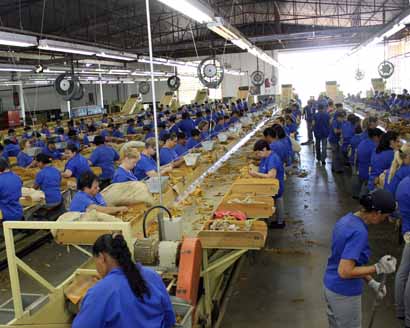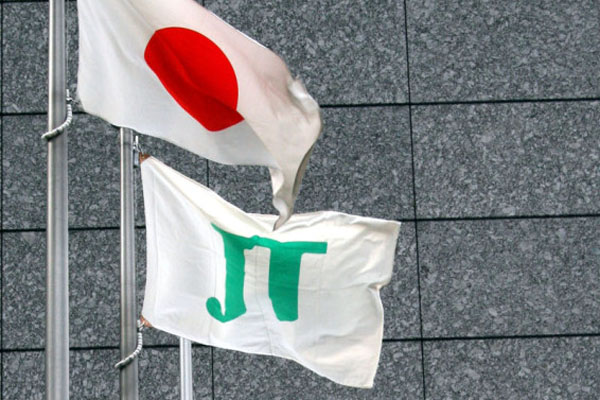Employees of a US city who use tobacco products can expect to pay more for their health insurance starting in 2019, according to a WPXI story.
From January 4, tobacco-using employees of the City of Pittsburgh, Pennsylvania, will be the subject of a $50 monthly premium surcharge.
According to a letter sent to employees, they must complete and sign an affidavit, stating whether or not they are tobacco users.
The letter states that the city informed employees of the coming changes in October 2017.
According to the letter, employees who do not use tobacco for at least three months, or who participate in a cessation program, will not pay tobacco-user payroll contributions.
The letter introduced a new wellness platform administrator and said all employees’ wellbeing was valued by the City of Pittsburgh.
It said, in part, under a ‘What to look forward to’ heading: ‘The wellness program is designed to meet your specific wellness needs using these four wellness dimensions: mind, body, heart and spirit’.
‘This program is based on a points system and sets goals for employees to improve their wellbeing. These are called “MOJO Points” and when you earn a total 750 points you will be eligible for a reward,’ the letter said.
Category: Financial

Wellness at a cost

Growing rewards
More than 124,000 Zimbabwean farmers have so far registered to grow flue-cure tobacco during the 2018-19 season, up by about 47 percent on the more-than 84,000 who had registered by the same time last year, according to a story by Elita Chikwati for The Herald.
At least 30,000 of the farmers who have signed up to grow flue-cured in 2018-19 are first-time registerees.
According to Tobacco Industry and Marketing Board (TIMB) figures, all Zimbabwe’s tobacco growing provinces except Masvingo have registered an increase in registrations.
The figures show that by September 20, 124,220 farmers had registered to grow flue-cured tobacco for the 2018-19 season up from the 84,688 who had registered by September 20, 2017.
Mashonaland Central, with 49,838 registrations (up from 31,991) has so far recorded the highest number of registered growers.
According to Chikwati, the increase in registrations has been brought about largely by the need for each farmer to obtain a grower number, without which he cannot benefit from foreign currency incentives.
The government in 2016 implemented an export incentive scheme, which rewards growers for helping to generate foreign currency.
Before the introduction of the incentive scheme, some farmers used to sell their tobacco using other farmers’ grower numbers.
Controlling spending
The EU Commission said yesterday that it had supported the Secretariat of the World Health Organization’s Framework Convention on Tobacco Control (FCTC) with €5.2 million of funding between 2014 and 2017.
The Commission was replying in writing to a question raised in July by the British member of the European Parliament, Tim Aker, who asked the Commission to set out, ‘broken down both by organisation and year-by-year since 2000, just how much money has been paid by the Union under whatever budget heading to stop smoking’.
In reply, the Commission said that a detailed breakdown of Union funding on tobacco control, by year, budget heading and organization could be found in the Annex.
‘To summarise, from 2001 to 2017 a total of €158 million was spent on a number of tobacco control actions which included information campaigns, initiatives to support implementation of EU legislation, strengthening co-operation both at the EU level and at global level, knowledge development, and exchange of information for evidence-based policy making,’ the Commission said.
‘In addition, a total of €116.5 million has been invested since 2002 in a number of tobacco-related research projects through the EU Framework programs for research and innovation (FP6, FP7 and Horizon 2020). These have addressed the entire health continuum (causes, prevention, diagnosis, treatment, public health) and all types of research (exposure, policy/implementation, basic, disease specific).’
Finally, the Commission said that, from 2014 to 2017, it had supported the Secretariat of the FCTC with an amount of €5.2 million. ‘The Convention Secretariat is hosted by the World Health Organization and tasked with the implementation of the FCTC,’ it added. ‘It also works to promote the Protocol to Eliminate Illicit Trade in Tobacco Products.’
Malawi growers underpaid
Malawi’s Burley growers are underpaid, according to a new report cited in a Maravi Post story relayed by the TMA.
The report, entitled The Burley Tobacco Value Chain Analysis, was released by the Center For Social Concern (CFSC).
It called for crop diversification for Burley tobacco growers and the creation of a structured market for them, because currently they were not ‘adequately compensated for their contribution in the value chain’.
The report found very low levels of crop or enterprise diversification within the tobacco sector.
It said that farmers understood the need to diversify their range of crops and that most of them already grew other crops, with the most popular being maize (for food), groundnuts, soybean, and beans.
However, the consensus of the farmers was that as a cash crop, there was currently no viable alternatives to tobacco.
“There are so many factors suggesting the leaf processing companies enjoy wider profit margins which can be passed on to other players through higher prices on the auction floors,” said CFSC programs officer Lucky Mfungwe. The Malawi Government needs to be more resolute in enforcing minimum prices to make this happen.”
Mfungwe said that since the domestic tobacco sector was consolidated “there needs to be continuous efforts to bring in more buyers at the auction floors to help build up competition for the tobacco grown by independent farmers”.
He called also for a “review of the contract farming mechanism to ensure that it remains beneficial to the industry in the long term”.
Bring out the bins
A smokers’ lobby group today gave a cautious welcome to a new campaign to reduce cigarette litter but called on councils to provide more cigarette bins.
“It’s all very well demanding that smokers bin the butt, but where are the bins?”, asked Simon Clark, director of the smokers’ group Forest in responding to the launch of Keep Britain Tidy’s ‘BinTheButt’ campaign.
“Unfortunately many councils refuse to provide cig bins because they say it ‘normalises’ smoking. They can’t have it both ways.
“We’d be happy to support this campaign but if Keep Britain Tidy really wants to address the issue of cigarette butts they need to lobby councils to provide more bins.
“They also need to re-engage with the tobacco industry and work with consumer groups such as Forest.
“Meanwhile a bin the butt campaign that ignores the importance of bins is a bit of a joke, to be honest.”
Evoking a new nicotine era
Voke, the nicotine inhaler that was granted a medicinal-product licence in the UK in 2014, is expected to be launched onto the market next year.
In a press note issued earlier today, Kind Consumer Holdings Limited, the company behind Voke (pictured as it was in February 2017), said the product had been delayed getting to market by issues surrounding the scaling-up of its manufacturing process.
However, the company, which in January 2017 took direct responsibility for manufacturing the product, had now raised further funding from existing and new investors, funding that would be used ‘to complete set up of state-of-the-art manufacturing capacity for Voke and to start recruitment of key marketing personnel to support the UK market launch due in 2019’.
“This funding is another step towards commercialisation of Voke, a product which promises to make a real difference to the health burden of smoking by offering an alternative to smoking for smokers and those around them,” Paul Triniman, CEO of Kind Consumer, was quoted as saying.
The Voke 0.45mg Nicotine Inhaler was granted a medicinal product licence from the UK Medicines and Healthcare products Regulatory Agency in September 2014, but it will be launched as an over-the-counter General Sale List product in the UK.
The product delivers a nicotine formulation via a breath-operated valve in a cigarette-sized medical device. Its technology, which is protected by more than 340 granted worldwide patents, contains no electronics, and does not use heat or combustion.
Kind Consumer said the 0.45 mg nicotine dose had been clinically proven to provide effective craving relief.
It said the product could be used discreetly, generating no visible exhalation and no odor.
Smokers to pay the price
In announcing that it had applied to increase the retail prices of its tobacco products, Japan Tobacco Inc. said today that declining sales made it difficult to maintain quality and services with cost reductions alone.
JT said it had applied to the Minister of Finance for approval to ‘amend’ retail prices of tobacco products in Japan in conjunction with a planned tobacco-excise-tax hike on October 1.
JT said it had applied to increase the retail prices of 143 products, including 122 cigarettes, one cigarillo, three pipe tobaccos, three cut tobaccos and 14 snuff tobaccos. Additionally, it said it had applied for seven Ploom TECH product price rises in the tobacco vapor category.
‘The Japanese domestic tobacco market continues to experience decreasing sales volumes due to structural factors including the aging and declining adult population, as well as increasingly stringent smoking restrictions,’ the company said in a note posted on its website. ‘At the same time the cost per pack for providing the same quality and services has been increasing. Under these circumstances, JT had been maintaining the quality and price levels through cost reducing efforts.
‘However, since JT is projecting a further sales volume decline, it is very difficult to maintain the same quality and services with cost reduction initiatives alone. In this context, JT has applied to amend the retail prices of cigarettes, which exceeds the excise tax hike of ¥1.0 per cigarette, considering further increases in costs including materials. Retail price increases will vary among different brands and products, to ensure that the quality of each product will be maintained and that consumer expectations continue to be met.’
JT added that, within the tobacco vapor category, a new tax system would be imposed in stages over a five-year period. JT said it had decided to apply a ¥30 increase to the retail price of Ploom TECH, whose tax was expected to be increased by ¥30.89 a pack.
A table of representative brands presented in the note indicated that the retail price of a pack of Mevius cigarettes would rise by ¥40 to ¥480, while the price of Winston and Hi-Lite would increase by ¥30 to 450, and the price of Hope would go up by ¥20 to ¥250.
‘New retail prices will be effective on October 1, 2018, following the Minister of Finance’s approval,’ JT said.
Good year ahead
Universal Corporation said yesterday that it had performed strongly during the first quarter of what it predicted would be a good year.
In reporting the company’s first quarter results to the end June, chairman, president, and CEO George C. Freeman, III said the company had benefited from higher carryover crop sales in several origins, particularly in its North America segment, where sales volumes in the fourth quarter of fiscal year 2018 were hampered by shipping delays from reduced transportation availability in the US. ‘We are also continuing to see robust demand for both wrapper style tobaccos and related value-added processing services. We have increased our offerings to meet demand for natural wrappers in both the United States and Europe and continue to be a leading wrapper tobacco supplier.’
Freeman said that crop purchases were progressing as expected, with purchasing effectively completed in Brazil and well underway in Africa. ‘We are not seeing any significant supply disruptions thus far this year,’ he said. ‘Burley production volumes have recovered in Africa, and crop sizes there for both flue-cured and Burley tobaccos are coming in somewhat higher than previous estimates.
‘Although it is still early in our fiscal year, we are pleased with our results to date and continue to expect that our volumes will be above those achieved last fiscal year. We are also focused on our enhanced capital allocation strategy that reflects the strength of our balance sheet and demonstrates our commitment to sustainable shareholder value creation. As announced in conjunction with our 36 percent dividend increase in May 2018, our strategy has four key priorities: strengthening and investing for growth in our core tobacco business; increasing our strong dividend; exploring growth opportunities in adjacent industries that would utilize our assets and capabilities; and returning excess capital to our shareholders. In line with this strategy, we are positioning our company for ongoing success as we continue to identify areas where we can provide additional value and expand the services we provide customers in our core tobacco business.’
Universal reported net income of $13.2 million, or $0.52 per diluted share, for the first quarter of fiscal year 2019. ‘Those results were up $9.6 million compared with net income of $3.6 million, or $0.14 per diluted share, for the first quarter of fiscal year 2018,’ the company reported. ‘The first quarter of fiscal year 2019 included a non-recurring tax benefit from the reversal of a previously recorded foreign dividend withholding tax liability that reduced income taxes and increased net income by $6.9 million, or $0.27 per diluted share.
‘Operating income of $8.4 million for the quarter ended June 30, 2018, improved $2.0 million, or 31 percent, compared to operating income of $6.4 million for the quarter ended June 30, 2017. Similarly, segment operating income was $8.9 million for the first quarter of fiscal year 2019, up $3.0 million compared to the same period last fiscal year, mainly as a result of earnings improvements in the North America and Other Tobacco Operations segments, partially offset by earnings declines in the Other Regions segment. Revenues of $379.7 million for the quarter ended June 30, 2018, increased by $95.1 million, or 33 percent, on higher total volumes and processing revenues and a more favorable product mix.’
Acquisitions lift volume
Japan Tobacco Inc. reported today that second-quarter domestic cigarette sales, at 20.8 billion, were down by 12.6 percent on those of the second quarter of 2017, 23.8 billion.
At the same time, industry volume was said to have been down by 13.4 percent from 33.8 billion to 39.1 billion.
JT said that its volume and that of the industry had been affected mainly by the expansion of the reduced-risk-product category and a continuing market decline.
The company estimates that sales of reduced-risk products (RRPs) in Japan during the second quarter accounted for about 20 percent of the total tobacco industry volume, a share that was up slightly from that of the first quarter.
During the second quarter of this year, sales of JT’s RRPs amounted to 0.5 billion cigarette equivalent units. ‘Based on sales volume, our share within the RRP category in the quarter was estimated at approximately 10 percent in convenience stores where our product was available,’ JT said in announcing its results for the second quarter and first half. ‘Ploom TECH’s nationwide roll-out started in June and expanded to convenience stores in July.’
JT’s market share during the second quarter, at 61.6 percent, was said to have been 0.6 of a percentage point higher than during the second quarter of 2017 and 0.2 of a percentage point higher than it was during the first quarter of this year.
Core revenue for the domestic tobacco business fell by 5.1 per cent to ¥142.9 billion and adjusted operating profit was down by 13.1 percent to ¥54.6 billion.
Meanwhile, Japan Tobacco International’s total shipment volume during the second quarter, at 107.3 billion, was increased by 5.6 percent on that of the second quarter of 2017, 101.5 billion.
At the same time, JTI’s Global Flagship Brand (GFB) shipment volume was increased by 0.8 percent to 68.1 billion.
JT reported that JTI’s volume growth had been driven by acquisitions in Ethiopia, Indonesia and the Philippines. ‘Excluding acquisitions and unfavorable inventory adjustments, total shipment volume declined 0.5 percent,’ the company said. ‘Quarterly volume increases and market share gains in Austria, Czech Republic, Germany, Hungary, Iran, the Netherlands, Poland, Switzerland and several emerging markets did not offset the impact of industry volume contraction, notably in France, Russia and Taiwan. GFB shipment volume increased 0.8 percent, growing in North and Central Europe and Rest-of-the-World, driven by Winston.’
JTI’s core revenue increased by 8.0 percent to ¥325.2 billion, while adjusted operating profit rose by 14.4 percent to ¥103.2 billion.
“Our first half results demonstrate a solid performance and we remain on track to achieve our consolidated full year profit target,” said Masamichi Terabatake, president and CEO of the JT Group.
“The international tobacco business delivered strong profit growth, led by pricing in key markets.
“We are confident about reaching our full year profit target as we expect our positive performance to continue into the second half.
“The acquisition of Donskoy Tabak companies will reinforce our No.1 position in Russia, a long-term key market for the Group’s earnings growth.
“In the Japanese domestic tobacco business, cigarette market share gains continued led by the robust performance of MEVIUS.
“Our RRP sales volume and revenue grew following an encouraging start of Ploom TECH’s nationwide roll-out while our capsule manufacturing capacity has continued to improve as planned. Although the current growth of the RRP market is slowing down, we believe that its market share could expand to 30 percent by 2020 driven by industry-wide innovations, an area in which we have also been making progress. To this effect, we are accelerating our investments in RRP initiatives, especially behind Ploom TECH, our unique offering, to establish the low-temperature heating category.”


